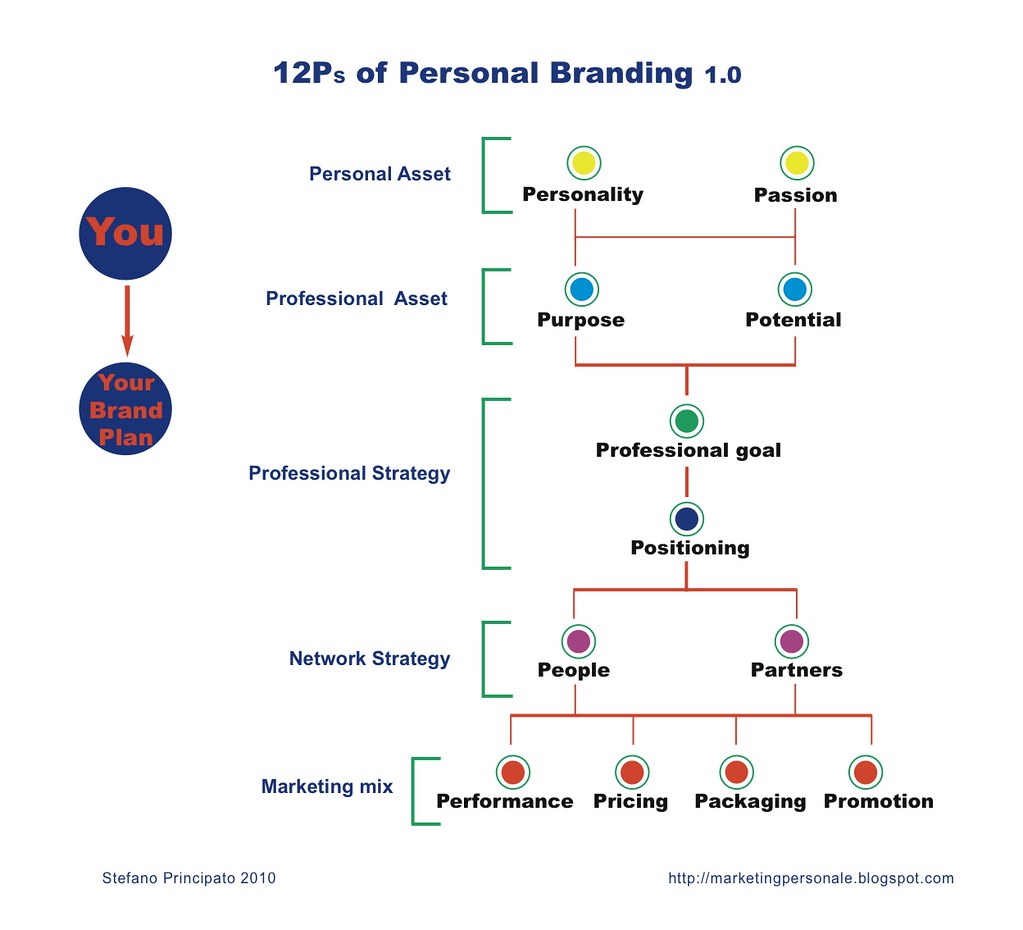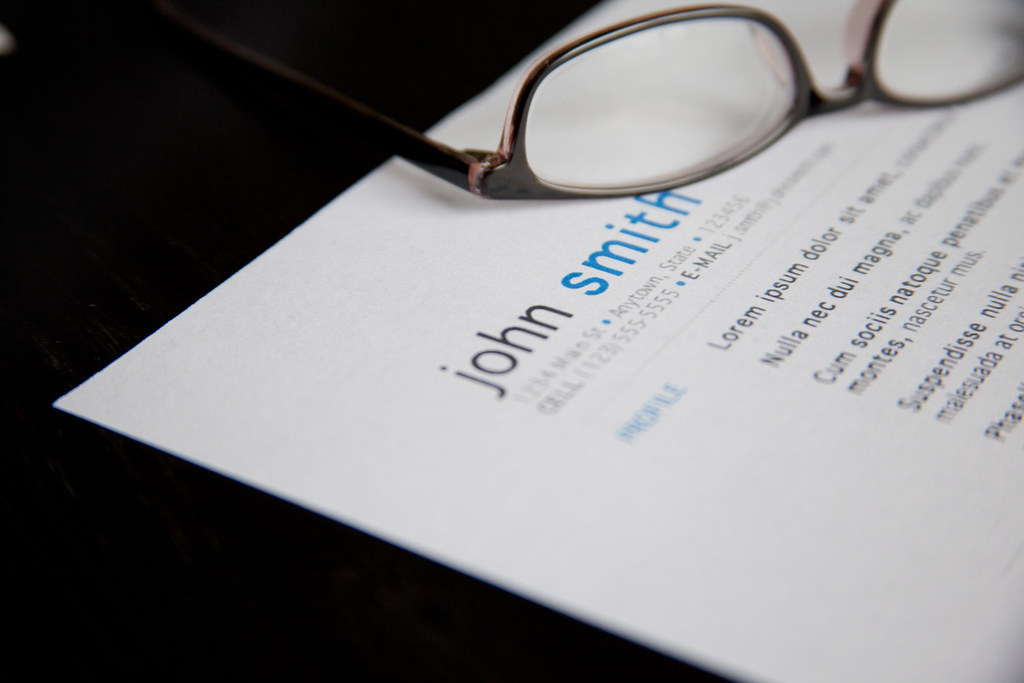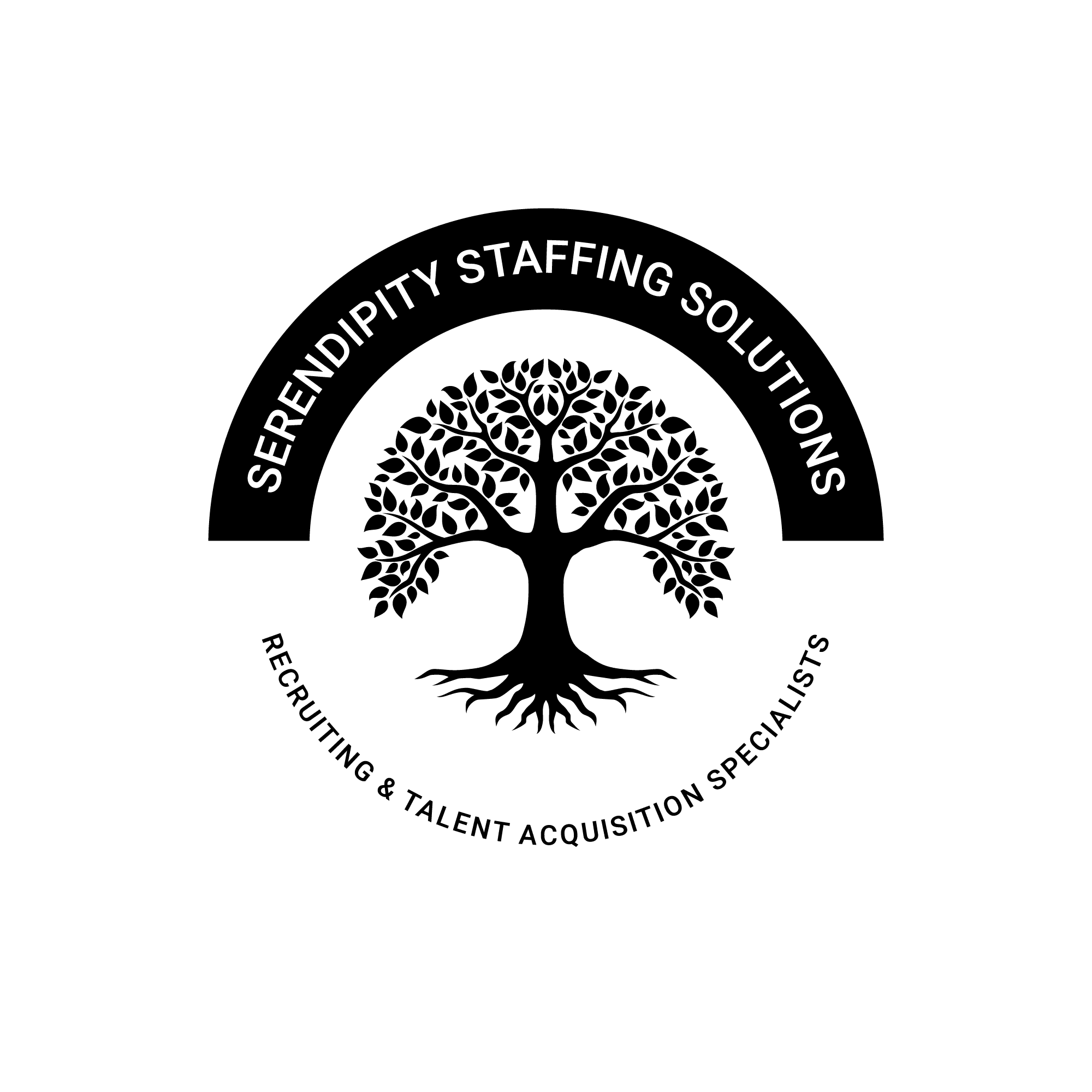Personal Branding
Personal branding is a critical aspect of professional development, and it’s essential to understand why it’s important in your career. A well-crafted personal brand can help you differentiate yourself from others in the job market, communicate your unique value proposition, and establish credibility and trust with others. First and foremost, personal branding allows you to […]
Personal Branding & Your Career…

Personal branding is the process of creating and promoting a unique image and reputation for yourself in the professional world. It’s about identifying and communicating your unique value proposition, which is the combination of your skills, experiences, and achievements that sets you apart from others. Having a strong personal brand can help you to be […]
Resume Tips for Success

I. RESUME TIPS FOR JOB SEEKERS
Writing a resume can be an intimidating task, especially when you are trying to make a good impression on potential employers. Crafting the perfect resume takes time and effort, but with the right tips, you can create an impressive resume that stands out in the crowd.
Whether you’re a recent graduate entering the job market for the first time or transitioning into a different career path, there are many strategies you can use to make sure your resume stands out from other applicants. From proper formatting and organization to how to best showcase your skills and experience, these tips will help you snag the job of your dreams.
A. UNDERSTAND THE DIFFERENCE BETWEEN A RÉSUMÉ AND CV
A résumé is a document that provides an overview of an individual’s professional and educational background, as well as their skills, abilities, and accomplishments in order to demonstrate their suitability for a certain job. It is typically one page in length and should be tailored specifically to the job being applied for by highlighting the most relevant qualifications and experiences.
The resume should include details such as contact information, education and training, work history, relevant certifications or licenses, publications or presentations which have been made, volunteer experience, awards or special recognition received, honors or memberships associated with organizations related to the field.
A curriculum vitae (CV) is a more comprehensive document than a résumé which provides an extensive description of one’s academic background and professional experience. CVs are typically longer than a résumé and can span up to two or more pages in length depending on the individual’s experience and qualifications.
Unlike a résumé which focuses on summarizing qualifications for a particular position, the CV is meant to provide an in-depth overview of everything that has been accomplished both professionally and academically throughout one’s career over time.
It contains detailed information regarding educational background (including degrees earned), research experience and publications, awards won or presented at conferences or other events, teaching history including courses taught along with any supervisions done by the individual as well as other professional activities such as membership in committees or boards related to the field.
B. CUSTOMIZE YOUR RESUME
1. Tailor your resume to the job you are applying for by emphasizing relevant skills and experiences that match the job description: When customizing your resume to a certain job, it is important to highlight the skills and experiences that match the requirements of that specific job.
This means specifically targeting your list of skills and experiences, such as education, employment history, certifications, awards and any other relevant information such as volunteer work or internships, towards that particular position. This will ensure that employers see you have what it takes to excel in their position and make you stand out from other applicants.
2. Don’t forget to include any certifications or special expertise that might be valuable to the employer: As well as highlighting skills and experiences related to the specific position’s requirements, it is also important to include any certifications or unique areas of expertise on your resume which can give you an extra advantage when competing with other applicants for a position.
These qualifications should be listed with details on how they were attained along with evidence of how they could add value in future roles. This will show employers not only what you have already achieved but will also demonstrate ambition and dedication in wanting to develop yourself even further.
3. Include important keywords that employers will be searching for in order to increase visibility of your resume: Keywords are essential when trying to get noticed by employers in a competitive hiring market.
Searching for keywords related to the job description such as software languages, industry terms and any other technical words associated with the role will help increase visibility when using search engine algorithms like ATS (Applicant Tracking Software).
Using these keywords appropriately within sentences rather than stuffing them into bullet points can help qualify an applicant’s ability even more so and make them stand out from others who are applying for similar positions.
C. FORMATTING & DESIGN CONSIDERATIONS
1. When selecting a font for your resume, it is important to choose one that is easy to read and understand. Fonts such as Times New Roman and Arial are widely used in the professional world due to their legibility and simplicity. Avoid using fonts that are too decorative or hard-to-read, as this can make your resume difficult for potential employers to digest quickly.
2. In order to effectively highlight key information, use a clean and organized format on your resume. Use bullets, bold text, and underlining strategically to draw attention to the most crucial elements of your work experience, education history, and skillset. By organizing the content into sections with concise headings, you can create an aesthetically pleasing document that is easy for employers to scan quickly.
3. Having clear headings on your resume allows employers to find what they need quickly without having to do too much searching or guesswork. Use descriptive titles such as “Work Experience” or “Education” that are easily recognizable so viewers can locate the appropriate section quickly and effortlessly.
4. Remember that each job application should have its own tailored resume – don’t just send out the same generic version for each position! Personalize each submission by highlighting different skillsets or experiences relevant to the specific role you are applying for, thereby showing employers why you are the best fit for their particular vacancy.
II. INTERVIEW TIPS FOR JOB SEEKERS
Interviews can be a nerve-wracking experience for job seekers, but with the right preparation and knowledge about how to present yourself, you can make sure you demonstrate your skills and qualities to the best of your ability. To help ensure success in your next interview, it is important to research the role and company thoroughly, practice responses to common questions, dress professionally, and bring copies of your resume. Additionally, you should arrive on time and with a positive attitude; try to focus on demonstrating how you will be an asset to the organization. With these tips in mind, you are well-positioned for success for your upcoming job interview.
A. RESEARCH THE COMPANY & POSITION YOU ARE APPLYING FOR
1. Researching the company and position you are applying for entails gathering information about their mission statement, history, goals and objectives, products/services offered, customer base and other pertinent details. Using this information will give you an advantage when speaking knowledgeably about why it is that you want to work with them. Knowing these facts will demonstrate to the company your interest in the job and your understanding of their values. It is also important to look into any press releases or news stories about the company to get a better feel for their current operations.
2. Familiarizing yourself with the position requirements and desired qualifications from the job description is essential when applying for a role. Taking time to thoroughly read through each qualification they ask for can help you make sure that you have all necessary skills and experience before submitting your application – as well as allowing you to identify areas where you may require additional training or development in order to meet the expectations of the role. Additionally, looking into roles similar to yours within companies of similar size can give an estimate of what salary range might be expected so that you can discuss salary expectations confidently upon interview.
B. PREPARE ANSWERS TO COMMON INTERVIEW QUESTIONS AHEAD OF TIME
1. Before an interview, one should prepare answers to commonly asked questions such as “Tell me about yourself?” “What is your greatest strength?” and “What is your biggest weakness?” in order to anticipate the questions and be well prepared for the interview. This can be done by taking the time to think of a response that best highlights how you are an ideal candidate for the position and how your qualifications, skills, and experience make you stand out from other applicants. It is also important to consider how you want to word each answer in order to come across as knowledgeable yet humble, confident yet not overbearing. Additionally, it is helpful to practice these answers out loud so that they will sound more natural when talking with an interviewer.
2. Practicing responses out loud before an interview can have many benefits including making sure that one has thought through their answer thoroughly and ensuring that their delivery comes off smooth and confident. It also helps build understanding of what points need to be further emphasized or altered depending on the interviewer’s line of questioning or body language. Furthermore, practicing beforehand allows for preparation of any potential follow-up questions that may arise during the conversation as well as ensuring that any stories used in responses sound genuine and relatable instead of rehearsed or memorized. Overall, taking time to practice answers out loud prior to an interview allows for a more professional presence throughout the meeting and increases confidence when interacting with the recruiter or hiring manager.
C. BE PROFESSIONAL & MAKE A GOOD IMPRESSION
1. Arriving at least 10 minutes early for an interview is essential for making a good impression. This gives you some extra time to gather your thoughts, as well as review your resume and any notes you may have taken about the role or company. It is important that you dress in professional attire; no jeans! Make sure that the outfit choice is appropriate for the position and company culture – this can usually be determined by researching their website or social media channels prior to the interview. Having copies of your resume in hand will demonstrate preparedness and help make a good impression.
2. During the interview, it’s important to remain friendly while also maintaining good eye contact with the interviewer(s); don’t forget to smile! Your posture should be confident but relaxed, and having a positive attitude shows that you are excited to learn more about the role and company. Try not to fidget too much, as this can come across as being nervous or anxious.
3. Listening carefully to questions being asked is critical during an interview – pay attention so that you can answer them thoughtfully and accurately. Avoid using slang language or speaking too informally; use proper grammar and language appropriate for a professional setting instead of casual conversation terms like “dude” or “like” when responding to questions. Showing off your knowledge of industry terminology can help impress your interviewer as well.
4. Asking pertinent questions about the position and company demonstrates genuine interest; this could include questions related to job responsibilities, team dynamics, potential projects, career growth opportunities etc. Doing some prior research on the organization can help you craft meaningful questions that show off both your knowledge of the industry and eagerness for a potential position at their firm.
5. At the end of an interview it is important to thank the recruiter/interviewer(s) for taking time out of their day to speak with you – expressing gratitude helps create a lasting positive impression on both sides of the table! Additionally, sending a thank-you note after an interview (via email or mail) provides another opportunity to highlight why you would be suitable for that particular role in their organization while also reiterating your appreciation for their time
THE BOTTOM LINE
Job seekers should strive to create a resume and prepare for interviews that are as strong and effective as possible. To do this, they should ensure that their resume is well-written and includes relevant information, such as education, skills, and experience tailored to the job; they should also take the time to research the company and craft thoughtful questions for their interviewer. Additionally, job seekers should practice answering common interview questions to gain confidence in their communication skills. By taking these steps, job seekers will give themselves a much higher chance of success in securing the job they desire.
One Step at a Time in the Job Search
What is the first step to take in a job search? Let’s start with “Who Am I?” If the job seeker can answer that question easily, then the rest of what to do, comes easily.
Changing Professions and Self Motivation
Our jobs are all essential to be successful in living happy and healthier. When we aren’t delighted with our existing task, we dislike getting up in the mornings to deal with another day. It is difficult to make great choices in your work environment if you do not like what you’re doing.
Strengthen Your Career Prospects – 7 Resume Must-Haves
Are you prepared to take your career to the next level? If that’s the case, it is high-time you’d review and update your resume. Your resume is often the first point of contact with potential employers, so it’s important to make a strong first impression.
Are You Inspired In Your Work?
We really feel satisfied and also inspired if we give happiness to others with our work but it requires being told. It is with this knowledge we must challenge ourselves to let others in our workplace know when their work makes a difference in the lives of others.
Everything Is Possible When You Believe !
When you believe everything is possible.
Hiring A Professional to Write Your Resume ? – Your Future May Depend On It
An expert resume writer recognizes with the job application procedure and understands how to present your information in the very best possible method. A professionally written resume can definitely assist your resume differ from the crowd.
